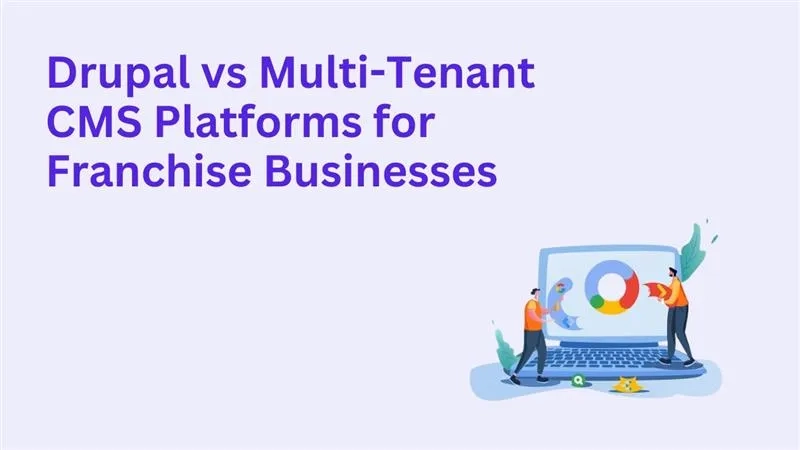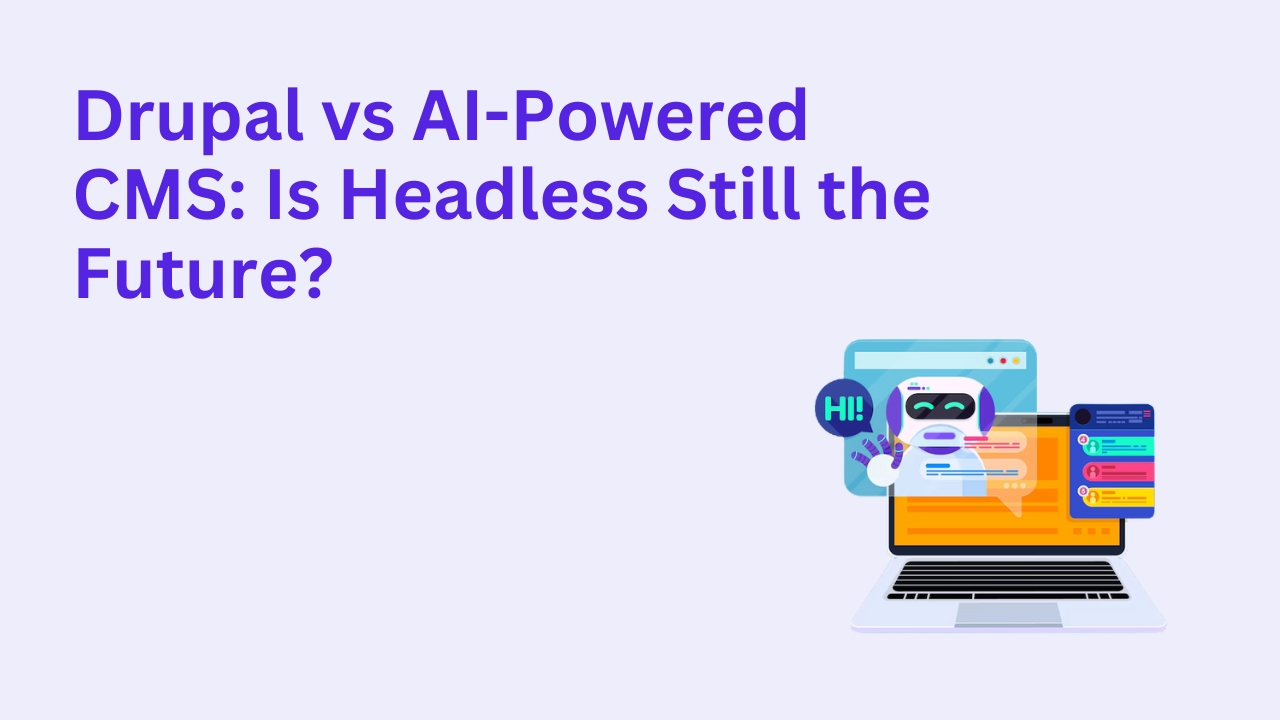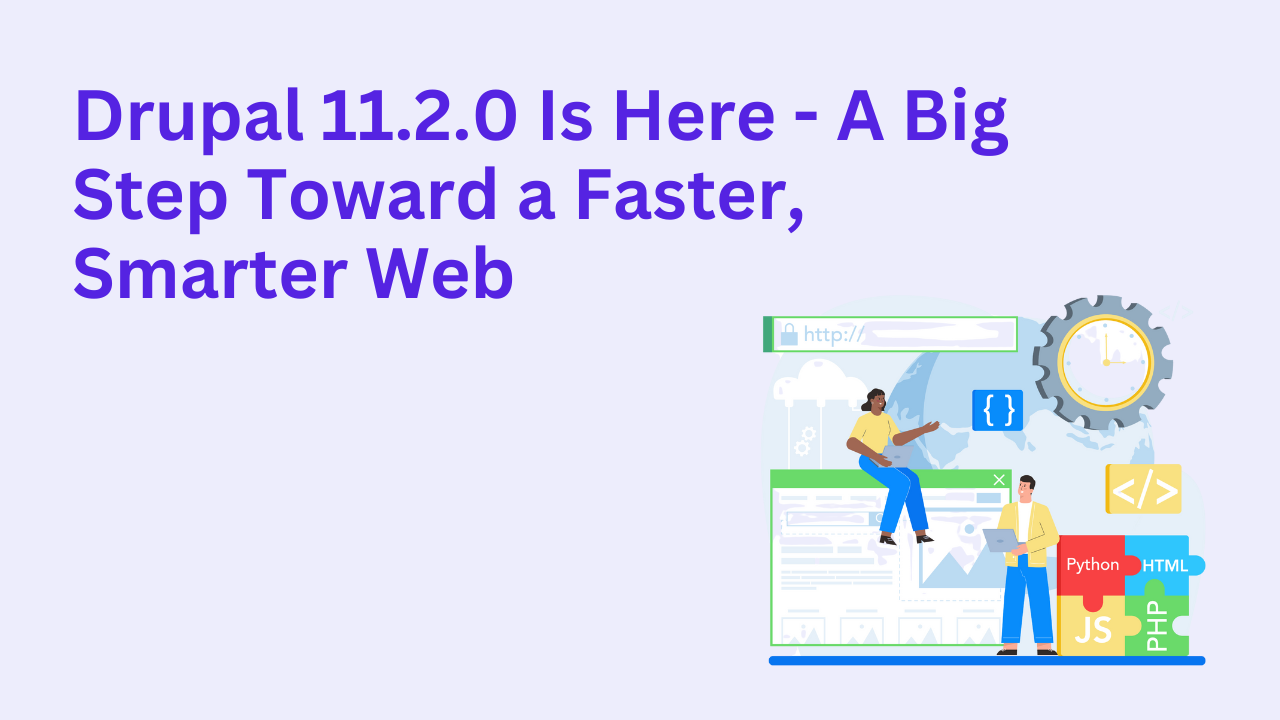Drupal vs Multi-Tenant CMS Platforms for Franchise Businesses: Which is Best?

When managing a franchise business, your digital platform needs to handle multiple sites while ensuring consistent branding, performance, and security. That’s where the debate between Drupal and multi-tenant CMS platforms comes in.
In this blog, we’ll break down:
What each approach offers
Pros and cons
Which one might fit your franchise’s growth strategy
What is a Multi-Tenant CMS?
A multi-tenant CMS hosts multiple websites on a single software instance, isolating data for each tenant (or brand) while sharing the same codebase and infrastructure. Popular multi-tenant CMSs include:
Kentico
Contentstack
Agility CMS
They’re designed to simplify management of multiple sites, which can be especially handy for:
Franchise businesses with dozens or hundreds of locations
Corporate brand sites plus localized microsites
Centralized updates across all tenant sites
Drupal: A Flexible Framework for Multi-Site Management
Drupal doesn’t offer a multi-tenant architecture out of the box, but it’s highly customizable. Using Drupal Multisite and advanced configurations, you can create:
Shared codebase (core + modules)
Isolated databases or shared database with isolated tables
Theming and content customization for each franchise site
With Drupal, you’re not locked into rigid tenant structures. You build exactly what you need:
Local sites with unique content and branding
Global governance for updates, security, and compliance
Advanced workflows to manage content across regions
Pros and Cons
Drupal for Franchises
Pros:
Extreme flexibility in design and functionality
Granular control over branding and theming
Easier integration with custom business systems
Full ownership of data and infrastructure
Extensive community modules and security patches
Cons:
More complex to set up initially
Requires skilled Drupal developers for multisite configuration
Hosting and maintenance are your responsibility
Multi-Tenant CMS for Franchises
Pros:
Quick deployment for new tenant sites
Centralized updates to reduce admin overhead
Often includes built-in analytics and personalization
Lower maintenance costs if SaaS-based
Cons:
Less flexibility for custom workflows and integrations
Potential vendor lock-in
Limited control over underlying code and data
Licensing costs can add up as you scale
When to Choose Drupal
You need flexibility. Drupal lets you tailor every franchise site without the constraints of vendor limitations.
You want to integrate deeply with custom systems (e.g., ERP, CRM, localized ordering or delivery platforms).
Your franchise business is expanding rapidly, and you want to avoid per-tenant costs.
You have skilled developers (or an agency like Drupalify!) to handle ongoing updates and security.
When to Choose a Multi-Tenant CMS
You want a fast launch for new franchise sites.
You have limited in-house resources for development and maintenance.
You prefer a SaaS model with built-in analytics and global updates.
Final Verdict: Flexibility vs Convenience
Both Drupal and multi-tenant CMS platforms have a place in the franchise world.
Drupal is the best choice if you need unlimited customization and deep integrations to support complex franchise models.
Multi-tenant CMS platforms work well when ease of use, speed, and centralized updates are your top priorities.
Ready to Explore Drupal for Your Franchise?
At Drupalify, we’ve helped businesses build powerful, multi-site Drupal ecosystems for franchise and multi-location operations.
👉 Hire Drupal Developers for Franchise Platforms
📅 Book a Consultation with Our Experts
We’d love to explore how Drupal can future-proof your franchise’s digital presence!








